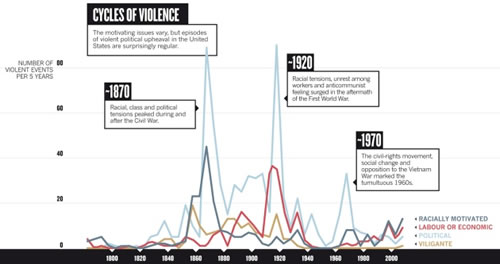The Science of History?

For the past 15 years, Turchin has been taking the mathematical techniques that once allowed him to track predator–prey cycles in forest ecosystems, and applying them to human history. He has analysed historical records on economic activity, demographic trends and outbursts of violence in the United States, and has come to the conclusion that a new wave of internal strife is already on its way1. The peak should occur in about 2020, he says, and will probably be at least as high as the one in around 1970. “I hope it won't be as bad as 1870,” he adds.Historians, on the other hand, are not amused: More
Turchin's approach — which he calls cliodynamics after Clio, the ancient Greek muse of history — is part of a groundswell of efforts to apply scientific methods to history by identifying and modelling the broad social forces that Turchin and his colleagues say shape all human societies. It is an attempt to show that “history is not 'just one damn thing after another'”, says Turchin, paraphrasing a saying often attributed to the late British historian Arnold Toynbee.

No comments:
Post a Comment